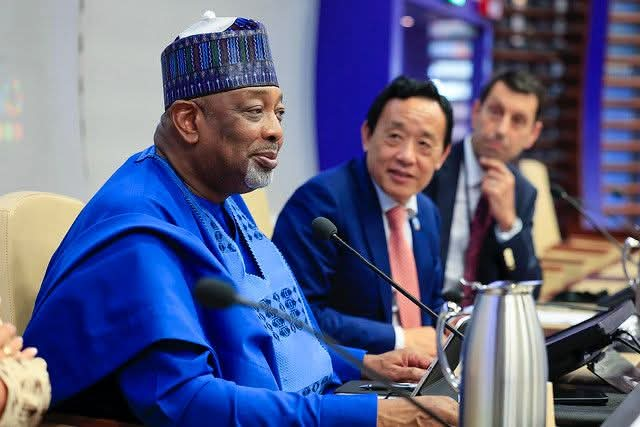Nigeria is banking on proactive agricultural policies to transform its food systems, protect the climate, and secure better livelihoods for farmers, the Minister of Agriculture and Food Security, Senator Abubakar Kyari, has said.
Speaking at a high-level UN event in Rome, Italy, Kyari stressed that agriculture must go beyond just producing food. According to him, it should restore degraded soils and ecosystems, reduce emissions, and ensure that farmers—especially smallholders—can live and work with dignity.
“In Nigeria, we are laying the foundations for a climate-resilient, nature-positive food system. From distributing improved seeds and promoting better soil management to expanding agroforestry, we are determined to boost food production while safeguarding our environment,” he said.
The minister explained that the country’s National Agrifood Systems Investment Plan (NASIP) is central to this vision. NASIP, he noted, is designed to attract investments that create jobs, fight poverty, make healthy diets more affordable, and at the same time, reduce the sector’s greenhouse gas emissions.
He added that Nigeria’s upcoming climate plan, known as NDC 3.0, will further link climate commitments to inclusive agricultural transformation. This includes supporting climate-smart farming, restoring degraded lands, promoting regenerative practices, and empowering women and young farmers with the resources they need.
Kyari also pointed to Nigeria’s National Adaptation Plan, which integrates agriculture, water, health, and infrastructure, placing communities at the heart of solutions. He revealed that Nigeria is positioning itself under Article 6 of the Paris Agreement to tap into global carbon markets, using carbon credits from climate-smart agriculture and reforestation to attract more investment.
Highlighting ongoing projects such as the Special Agro-Industrial Processing Zones (SAPZ), Value Chain Development Programme (VCDP), and Rural Access and Agricultural Marketing Project (RAAMP), the minister said these initiatives are helping to build resilience and opportunities for rural communities.
But he cautioned that more funding is urgently needed. “We need greater investment to develop climate-resilient crops and scale sustainable practices that can withstand the realities of climate change. This is not just about Nigeria; it is about securing food for future generations everywhere,” he said.
Kyari called on international partners—such as FAO, IFAD, and the Global Environment Facility—to step up concessional financing and support programmes that can make a real difference for smallholder farmers.
He also expressed appreciation to FAO and IFAD for their technical support through the Global Environment Facility’s Food Systems Integrated Programme, describing it as a vital platform for countries to share knowledge and innovations.
“As nations, we must commit to coherent strategies that link climate action with agricultural development. Together, we can transform food systems to be sustainable, resilient, and inclusive,” Kyari concluded.


